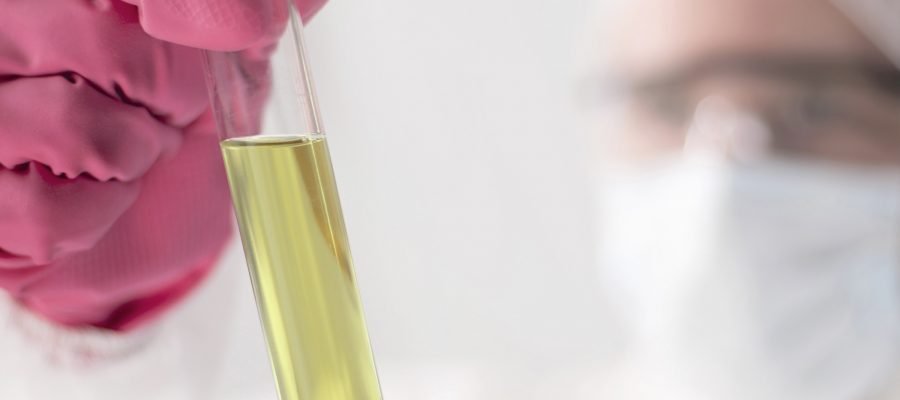Pérolas Clínicas sobre Globulina ligadora de hormônios sexuais (SHBG) – AINDA QUE NÃO AS TESTAMOS
 Commonly when we talk with all of you smart clinicians, you have done additional work-up besides our DUTCH testing. Many will run thyroid panels, CBC, metabolic panels, food testing, stool testing, etc. and we are asked about SHBG.
Commonly when we talk with all of you smart clinicians, you have done additional work-up besides our DUTCH testing. Many will run thyroid panels, CBC, metabolic panels, food testing, stool testing, etc. and we are asked about SHBG.
SHBG is a glycoprotein binding globulin made primarily in the liver that requires calcium and zinc to form. Its job is to preferentially bind up DHT, testosterone, androstenediol (not androstenedione), estradiol, and then estrone in that order. DHEA, but not DHEA-s, can bind weakly to SHBG.
Progesterone and cortisol bind to transcortin (AKA Cortisol Binding Globulin – CBG).
SHBG is degraded in the extra-cellular space therefore it does not come through the urine as the fully formed glycoprotein, but degraded into piece and parts by your immune system. As a results, it is not tested in the DUTCH testing.
You can think of SHBG like a bus that ferries these hormones around. The more SHBG you have, often the less hormone available for use by the body because they are sitting on the bus. Reasons for elevated levels of SHBG include: liver disease, hyperthyroid or too much thyroid medication, the medication Dilantin (phenytoin), and oral birth control pills (often permanently if done longer than 5 years), and ground flax seeds (not the oil). There is also a genetic mutation that slows the half-life causing more to float around the blood stream. When SHBG is higher, bioavailable hormone is decreased. Because urine testing is a reflection of bioavailable hormone, you would generally expect testosterone and estrogens on the DUTCH test to also decrease.
SHBG is lowered with high insulin, obesity, PCOS, Cushing’s Disease, steroid use, healthy levels of growth hormone and IGF-1, Avena sativa (mixed research but 500-1000mg daily) and Urtica dioica (300-600mg daily).
We hope this helps with your understanding of SHBG and can use it in relation to the DUTCH results.
CLINICAL PEARLS TO UNDERSTANDING DHEA
DHEA (Dehydroepiandrosterone) is an endogenous steroid hormone made by both men and women in the adrenal gland, predominantly, and to a lesser degree in the brain and gonads. It is important not to confuse DHEA with DHEA-s. DHEA-s is the sulfate ester of DHEA and only a part of DHEA testing. When you choose the dutch complete or the dutch sex hormone metabolites test from Precision Analytical, you will see that the 3 big urine markers are included: DHEA-s, etiocholanolone (metabolite) and androsterone (metabolite). When looking at a hormone cascade chart, it is important to note that DHEA not DHEA-s goes on to make testosterone and/or estrone (E1).
Many clinicians want to know, why are my patient’s DHEA levels high or low?
There are several reasons for elevated DHEA levels (not on supplementation) with the first being stress. As DHEA is produced in the adrenal glands, stress may be triggering the release of extra hormones. In addition, ADD medications such as Ritalin, Xanax (alprazolam), Wellbutrin (bupropion), Arimidex, Norvasc (amlodipine), Procardia, diltiazem, and alcohol will raise DHEA levels.
DHEA naturally declines with ages as it tends to peak out somewhere between 25 and 30 years old (depending on the research) much like testosterone. In addition, the birth control pill, Pulmicort, Seroquel, dexamethasone, and Metformin are all known to lower DHEA levels.
In some cases, your patient’s level high or low level may be medication induced.
For those who use supplements to restore healthy DHEA levels, it is important to understand that it is an androgen therefore can worsen acne, hirsutism, sweating, male pattern baldness, prostate issues, and cause more irritation/anger. This is especially true if they push that 5 alpha reductase activity (which means more DHT is being made at the cellular level), a marker provided in the dutch testing results. Care must also be taken for those on DHEA and medications for diabetes and/or blood clotting.
As usual, if you have any questions about your patient’s results in relation to DHEA levels (or any other marker), we are here to help!



